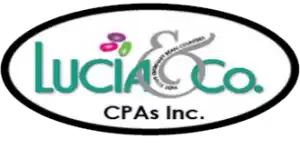As the calendar turns to 2024, it’s critical for small business owners to dive into small business tax planning 2024. This isn’t just a matter of meeting tax obligations; it’s about leveraging opportunities to boost your business’s financial well-being. Proactive tax planning can lead to significant tax savings, thus enhancing your business’s profitability and sustainability.
The Basics of Tax Planning for Small Businesses
When it comes to small business tax planning in 2024, understanding the basics is crucial for effective management and strategic decision-making. Tax planning is a crucial aspect of financial management for any small business, especially as we look forward to 2024. It involves more than just complying with tax laws; it’s about strategically aligning your business activities to optimize tax benefits. Understanding the basics of tax planning is the first step towards ensuring your business is financially sound and tax-efficient.
The Importance of Early Planning
Initiating your small business tax planning at the start of the year, or even at the end of the preceding year, sets the foundation for a financially successful year. Early tax planning gives you the leverage to analyze your business’s financial performance, anticipate tax liabilities, and explore avenues for tax savings. As part of 2024 tax strategies for businesses, consider reviewing your previous year’s tax returns to identify any areas of improvement, understand the tax impact of any significant business decisions made, and plan for similar scenarios in the upcoming year.

It’s always better to start planning out your small business taxes sooner rather than later.
This approach also allows you to take advantage of time-sensitive tax-saving opportunities. For example, making business purchases or investments at specific times of the year can maximize your deductions. Additionally, understanding and preparing for quarterly tax payments can prevent last-minute surprises and cash flow issues.
Key Tax Planning Strategies
Effective tax planning hinges on a few fundamental strategies. Firstly, accurate and detailed record-keeping is essential. This not only ensures compliance but also provides a clear picture of your financial standing, helping you make informed decisions. Implementing tax reduction strategies like deferring income to the next year or accelerating expenses into the current year can significantly impact your tax liabilities. For instance, if you expect a higher income in the next year, it might be beneficial to defer some income to avoid higher tax brackets.
Utilizing all available tax credits and deductions is another vital strategy. This involves staying up-to-date with the latest tax laws and understanding how they apply to your business. Regular consultation with a tax professional can provide personalized small business tax planning advice and ensure you’re not missing out on any beneficial tax breaks.
Lastly, consider the structure of your business. Different business structures have different tax implications. For instance, sole proprietorships, partnerships, LLCs, and corporations are all taxed differently. Reviewing and possibly restructuring your business can lead to more favorable tax treatment.
Navigating 2024 Tax Changes for Small Businesses
The tax landscape is dynamic, with frequent changes and updates that can significantly impact small businesses. As we enter 2024, staying informed about these changes is crucial to manage your tax strategy effectively.
Anticipating Federal and State Tax Changes
Keeping abreast of both federal and state tax changes is vital. Federal tax laws can impact your business’s overall tax strategy, while state-specific changes, particularly relevant in diverse tax landscapes like California, can have more localized effects. For instance, changes in state tax rates, adjustments in tax credits, or alterations in compliance requirements can significantly influence your small business tax planning.
Staying informed about these changes allows you to adjust your business strategies in time. This might involve adjusting your business’s budget, reassessing your investment strategies, or reevaluating your payroll structure. By anticipating these changes, you can strategically position your business to minimize tax liabilities and maximize potential benefits.
Adapting to New Tax Laws
With new tax laws constantly being introduced, flexibility and adaptability are key. Keeping an eye on Tax changes for small businesses in 2024 and seeking 2024 tax preparation tips for SMBs can help you navigate these changes effectively. This might include understanding the implications of new tax deductions, tax credits, and any other incentives that may be introduced.
Regularly updating your small business tax planning strategies to reflect these changes is crucial. This may require adjusting your business’s financial practices, revising your budget, or even changing your business operations to align with new tax incentives. Consulting with a tax professional can provide valuable insights into how these changes affect your business and how you can adapt your strategies accordingly.
Current Changes to the Tax Code in 2024
Here are some notable changes and improvements in the US tax code and IRS services for small businesses in 2024:
- Expanded Online Service Tools The IRS plans to launch Business Online Accounts, a tool designed specifically for small business taxpayers. This tool will allow businesses to view their tax information, schedule and track payments, and access business tax transcripts in an easy-to-read online format.
- Additional Online Capabilities for Notices and Document Filing: Businesses will have the ability to respond to certain notices online and file documents such as Form 1099 series information returns electronically, a change from the previous requirement to submit these forms by mail. By 2024, small business owners will be able to respond to a variety of online notices, including those related to self-employment income and employment-related identity theft.
- Simplified, Mobile-Friendly Forms: The IRS is updating the tax forms most frequently used by small businesses, including Forms 940, 941, and 944. These forms will be streamlined and made mobile-friendly, available in multiple languages, which will save time for small business owners who file their own taxes.
- Digitization to Eliminate Paper-Based Processes: The IRS is automating paper-based processes to improve processing times and provide faster refunds. This includes expanding the scanning of paper forms such as Forms 1040 and 941, which will help speed up processing and refund delivery for small businesses.
- Tax Credits for Energy Efficiency: Under the Inflation Reduction Act, small businesses can receive a tax credit covering 30% of the cost of switching to low-cost solar power. Additionally, small business building owners can receive a tax credit of up to $5 per square foot for energy efficiency improvements. There are also tax credits available for up to 30% of the purchase costs for businesses switching to electric and fuel-cell truck and van models.
- Reporting Changes for Income from Third-Party Settlement Organizations: The threshold for businesses receiving income from third-party settlement organizations is now $600. This means some businesses may receive Forms 1099-K for the first time in January 2024. This form reports various business transactions, including income from a business the taxpayer owns, self-employment activities, gig economy involvement, or the sale of personal items and assets.
- Electronic Filing Requirements for Information Returns: Starting from January 1, 2024, most employers will be required to file their information returns (such as Forms W-2, 1099, and 1095) electronically if they have 10 or more forms of any one type. This is a decrease from the previous threshold of 250 forms, aiming to improve the efficiency, accuracy, and security of tax administration.
Financial Strategies for Small Business Tax Planning
Smart financial strategies are at the core of successful tax planning for small businesses. As we gear up for 2024, it’s important to align your business’s financial practices with effective tax planning methods. This not only ensures compliance with tax laws but also maximizes your financial benefits.

By starting early, you can maximize your time spent on understanding and maximizing your tax deductions and credits.
Maximizing Deductions and Credits
A critical aspect of small business tax planning is understanding and maximizing the deductions and credits available to your business. This requires keeping up-to-date with the latest tax laws and understanding how they apply to your business situation. For instance, certain expenses like home office costs, business travel, and professional development can be tax-deductible, and taking advantage of these can substantially reduce your taxable income.
Furthermore, understanding tax credits is vital as they directly reduce your tax liability, unlike deductions that reduce taxable income. Tax credits may be available for various business activities like research and development, hiring certain employees, or implementing eco-friendly practices. Leveraging these credits effectively can lead to substantial tax savings for your business.
Reducing Tax Liabilities
Reducing tax liabilities is a major goal of any business’s tax strategy. Effective financial planning for taxes involves more than just preparing for tax payments; it’s about strategically managing your business’s finances throughout the year. This can include choosing the right business investments that offer tax benefits, managing debts wisely, and utilizing tax-efficient business structures.
Additionally, strategies like how to lower your taxes should be a continual focus. This could involve spreading income and expenses across different tax years, taking advantage of lower tax rates, and employing retirement plans that offer tax benefits. By adopting a comprehensive approach to financial planning, you can significantly minimize your tax burden while supporting your business’s growth and stability.
Contact Us for Small Business Tax Planning
As we enter 2024, small business tax planning 2024 should be a priority for every small business owner. This involves not only understanding and adapting to the new tax laws but also strategically managing your business’s finances to maximize tax benefits. Effective tax planning is key to reducing tax liabilities, enhancing profitability, and ensuring the long-term success of your business. By staying informed, and proactive, and consulting with tax professionals, you can navigate the complexities of tax planning and position your business for a prosperous and financially sound year ahead.
At Lucia & Co. CPAs, we specialize in guiding small businesses through the intricacies of tax planning with expert advice and tailored strategies. Our team is dedicated to ensuring that your business maximizes its tax benefits and thrives in the coming year. Whether you’re looking to optimize your deductions, adapt to new tax laws, or develop a comprehensive tax strategy, we’re here to help.
Don’t let the complexities of tax planning overwhelm you. Reach out to us for a consultation, send us your tax documents, and let’s make small business tax planning 2024 a cornerstone of your business’s success. Together, we can chart a path to a prosperous and financially sound year ahead.


